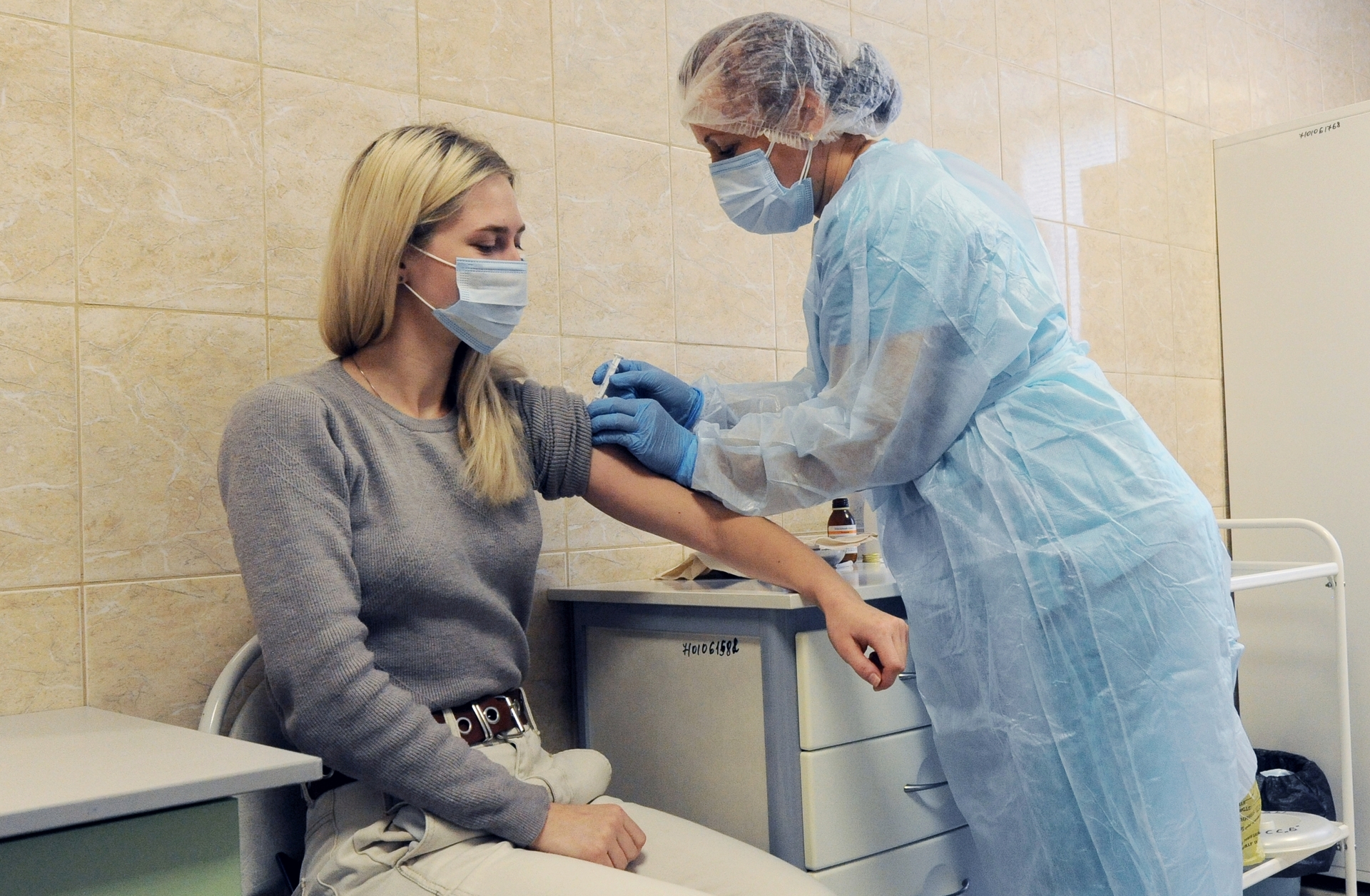Over the past day, 21,559 cases of coronavirus infection have been detected in Russia, 17,368 people have fully recovered.
Also, 852 deaths were recorded - the highest rate since the beginning of the pandemic.
The largest number of COVID-19 episodes in the Russian Federation was recorded in Moscow (2541), in St. Petersburg (1530), in the Moscow region (1450), in Samara (586), Voronezh (551), Nizhny Novgorod (546), Sverdlovsk (518) regions ...
In total, 7 464 708 cases of SARS-CoV-2 infection were detected in the country, 6 635 485 people recovered.
205,531 people died from complications that developed against the background of coronavirus and concomitant diseases.
According to Rospotrebnadzor, over 190.5 million tests for a new type of coronavirus have been performed for the entire time, including 309 thousand in the last day.
More than 1.27 million people remain under medical supervision.
The COVID-19 vaccination campaign in Russia "should end by winter," says Andrey Isaev, founder and CEO of the DNKOM Research Center for Molecular Genetic Research.
“Judging by the data that we see, we already have a fairly high level of herd immunity.
But this indicator is unstable.
The coronavirus is mutating, and immunity, including through vaccination, may be irrelevant in relation to new strains.
In addition, the level of protection decreases without revaccination.
Therefore, we cannot yet defeat the pandemic so that the coronavirus goes into oblivion, as happened with smallpox, "TASS quotes him.
According to the latest data from the Ministry of Health, 47.5 million Russians received the first component of vaccines against COVID-19 in the country, and 41 million people have already completed the vaccination process.
RIA News
© Alexey Sukhorukov
Mass vaccination against coronavirus in Russia began on January 18.
At the same time, on June 30, revaccination against COVID-19 started in the country.
To date, the country has registered five vaccines: "Sputnik V" and "Sputnik Light" Center.
Gamalei, "EpiVacCorona" and "EpiVacCorona-N" are developed by the Novosibirsk center "Vector" and "KoviVak" by the Chumakov Center of the Russian Academy of Sciences.
On September 3, Russian Deputy Prime Minister Tatyana Golikova indicated that in order to return to a quiet life in the country, about 80% of Russians must be vaccinated or infected with coronavirus in order to achieve herd immunity.
Earlier, she emphasized that this indicator must be achieved by November 1.
According to the infectious disease doctor Yevgeny Timakov, the COVID-19 pandemic will last at least another year, RIA Novosti reports.
At the same time, the head of the pharmaceutical company Pfizer, Albert Burla, believes that the world will be able to return to normal life after a pandemic within a year, but subject to annual vaccinations.
Impact of COVID-19 on health
The situation with coronavirus infection is currently manageable thanks to vaccines, but there is no commitment to prevention among the population of Russia.
This opinion was expressed by the Minister of Health of the Russian Federation Mikhail Murashko at the forum of patient-oriented innovations.
"This, of course, does not apply to everyone, this is a certain group of the population, but, unfortunately, it has a very strong effect on our common security," said Murashko, quoted by RIA Novosti.
Murashko also stressed that after suffering from COVID-19 for six months, "there is still a high risk of threats to life and health."
In this regard, citizens need to participate in an in-depth medical examination.
In addition, Murashko said that in the seven months of 2021, almost 300 billion rubles were spent on the treatment of patients diagnosed with coronavirus from the compulsory medical insurance system.
At the same time, Natalia Dolgushina, the chief freelance specialist of the Russian Ministry of Health for the reproductive health of women, said that the possibility of getting pregnant, including with the help of in vitro fertilization (IVF), decreases in women who have had coronavirus infection.
“We analyzed the data of our patients who had been ill with COVID-19, before and after the disease (according to previous IVF protocols), and we saw that a severe infection leads to a decrease in ovarian reserve in women of late reproductive age (after 37 years).
Now we are analyzing the state of embryos in women before and after the disease, as well as the outcomes of assisted reproductive technologies (ART) programs.
These data are now being prepared for publication, "Izvestia newspaper quotes her.
At the same time, the doctor of medical sciences, head of the department of assisted reproductive technologies of the center for reproductive health "CM-Clinic" Natalya Kalinina indicated that COVID-19 can provoke problems with conception in men who have had an infection.
At the same time, Ancha Baranova, Doctor of Biological Sciences, Professor at the School of Systems Biology at George Mason University, Chief Researcher of the Laboratory of Functional Genomics at the Medical Genomics Research Center of the Russian Academy of Sciences, expressed the opinion that the consequence of the COVID-19 pandemic will be a reduction in the life expectancy of people by ten years.
“As long as people are young and have immunity, they cope with coronavirus or multiple immunizations.
By old age, we have more and more diseases, and the coronavirus is one of them, and therefore, on average, life expectancy decreases ... We have a new natural enemy that is gradually gnawing us, "RIA Novosti quoted her as saying.
At the same time, in her opinion, the next generations will better cope with the coronavirus, even without drugs.
In turn, the head of the clinical research department of the Central Research Institute of Epidemiology of Rospotrebnadzor Khadizhat Omarova stated that during the second wave of the pandemic, including due to the emergence of new strains, gastrointestinal manifestations of COVID-19 began to occur more often in patients.
“Based on the results of a meta-analysis of 35 studies in patients with coronavirus infection ... the overall prevalence of gastrointestinal symptoms is 15%, and the most common of these are nausea, vomiting, diarrhea and loss of appetite,” she said.

